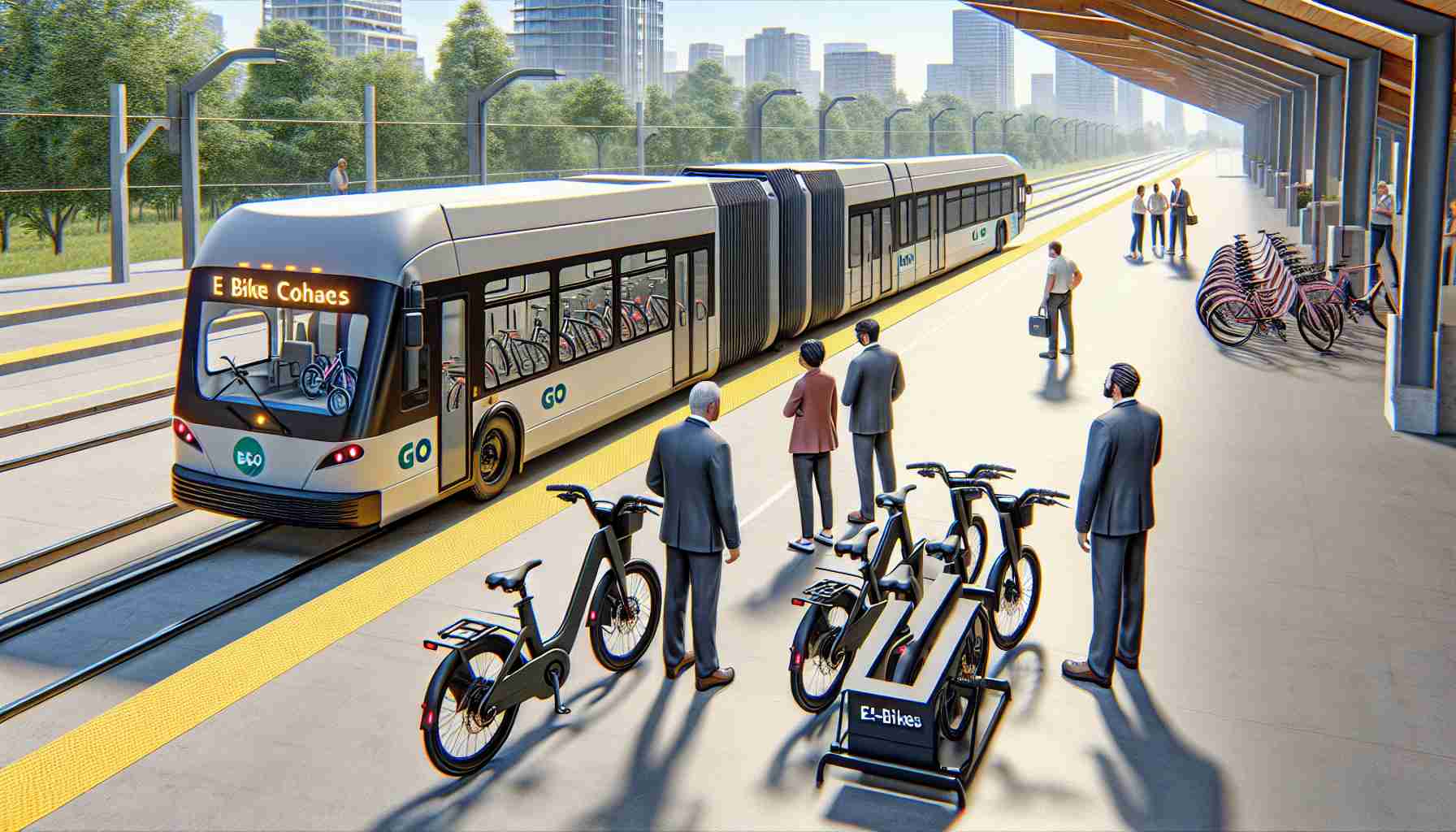GO Transit, the regional transit agency in Ontario, Canada, has announced that e-bike owners will now be required to have their bicycles inspected by staff before boarding a vehicle. The decision comes after a recent update by Metrolinx, the operator of GO Transit, stating that only e-bikes with specific certifications would be permitted on their trains. Starting in April, all e-bikes will be inspected for these certifications and awarded a “tamper-proof seal” if they meet the safety requirements. Bicycles without the proper seals or with outdated seals will be subject to inspection.
One of the key factors driving this decision is the desire to ensure the safety of passengers and prevent incidents such as an e-bike battery fire that occurred last year in a TTC subway car. Metrolinx aims to mitigate the risk of unsafe battery usage by assessing the batteries for compliance with UL (Underwriters Laboratories Of Canada) or CE (Conformité Européenne) requirements. Additionally, any physical damage to the battery case or warranty seal will be closely examined.
In line with promoting accessibility and accommodating the increasing number of cyclists, Metrolinx will also be constructing eight new bike coaches. These coaches, once completed, will be equipped with seating spaces for passengers as well as storage capacity for up to 22 bikes. The initiative will benefit commuters on the Kitchener line and provide seasonal weekend trips to Niagara Falls on the Lakeshore West route.
By implementing these measures, Metrolinx is emphasizing the importance of e-bike safety regulations and striving to create a more cyclist-friendly transit system. The introduction of bike coaches will allow for improved accommodation of bicycles on trains, offering a convenient and seamless travel experience for both cyclists and non-cyclists alike.
The e-bike industry has been experiencing significant growth in recent years, driven by factors such as increasing concerns about climate change, rising fuel costs, and a desire for healthy and sustainable modes of transportation. According to market forecasts, the global e-bike market is expected to reach $38.6 billion by 2025, with a compound annual growth rate of 9.7%.
However, the industry has also been facing challenges related to safety and regulations. E-bikes, which are equipped with electric motors, pose unique safety considerations compared to traditional bicycles. The batteries in these bikes can sometimes malfunction or overheat, potentially causing fires or other hazards. As a result, governments and transit agencies are implementing stricter regulations to ensure the safety of riders and those around them.
The decision by GO Transit to require e-bike inspections is part of a broader effort to address these safety concerns. By only allowing e-bikes with specific certifications on their trains, GO Transit aims to ensure that the batteries and overall bike construction meet the necessary safety standards. This will help prevent incidents like the e-bike battery fire that occurred on a TTC subway car last year.
Metrolinx, the operator of GO Transit, will conduct the inspections and award a “tamper-proof seal” to e-bikes that pass the safety requirements. This seal will indicate that the bike has been inspected and deemed safe for transportation. Bicycles without the proper seals or with outdated seals will be subject to inspection to ensure compliance with safety standards.
In addition to the e-bike inspections, Metrolinx is also taking steps to improve the overall cycling experience for commuters. The construction of eight new bike coaches, equipped with seating spaces for passengers and storage capacity for up to 22 bikes, will provide enhanced accommodation for cyclists on GO Transit trains. This initiative will benefit commuters on the Kitchener line and offer seasonal weekend trips to popular destinations like Niagara Falls.
By implementing these measures, Metrolinx is not only prioritizing the safety of e-bike riders but also working towards creating a more cyclist-friendly transit system. This aligns with the increasing demand for alternative modes of transportation and the desire to promote sustainable and active lifestyles.
For more information on the e-bike industry and related topics, you can visit the Electric Bike Report website.







